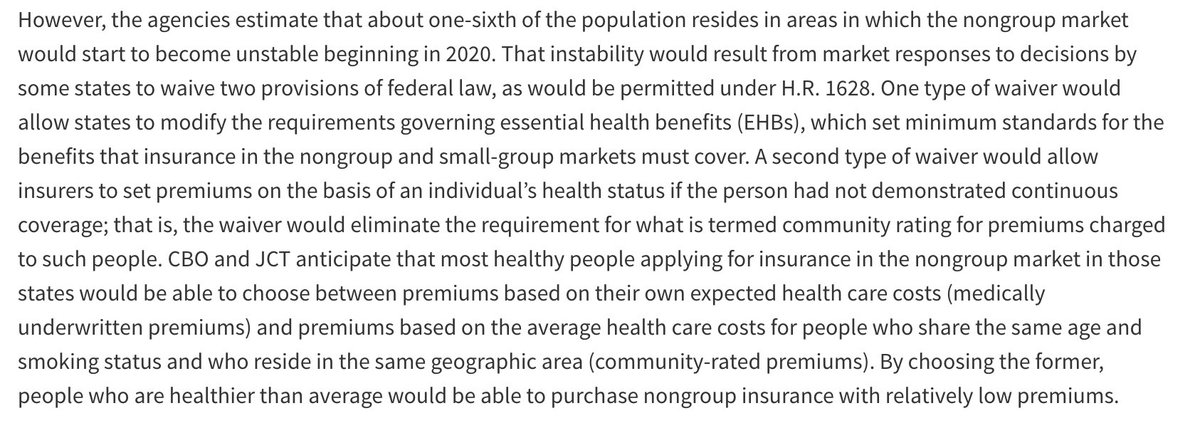Black Mamba
Member
https://www.cbo.gov/publication/52752
1. 23 million more uninsured
2. 1/6 non-group population would be in waiver states
3. 1/6 of the market to become unstable by 2020 thanks to AHCA
1. 23 million more uninsured
2. 1/6 non-group population would be in waiver states
3. 1/6 of the market to become unstable by 2020 thanks to AHCA




